Intl. People’s Tribunal seeks to challenge violence of US imperialism: Co-chair
By Syed Zafar Mehdi
Amid the rise of the global majority, anti-imperialist movements are joining forces to abolish the capitalist and imperialist systems perpetuating violence, says a legal scholar and activist.
In an interview with the Press TV website, Helyeh Doutaghi, co-chair of the International People's Tribunal on US Imperialism, explained the objectives of the Tribunal, which concluded on Saturday.
After nine months of international hearings on sanctions and economic coercive measures, the Tribunal concluded on Saturday in New York City. The verdict is expected to be announced on Monday.
The nations represented in the Tribunal included Cuba, Eritrea, Haiti, Iran, Iraq, Lebanon, Libya, Palestine, Nicaragua, North Korea, Sudan, Syria, Venezuela, Zimbabwe, US Virgin Islands and Puerto Rico.
Doutaghi's research focuses on the intersection of sanctions, imperialism, and international law.
She said the Tribunal project originated with the Committee of Anti-Imperialists in Solidarity with Iran (CASI), a collective of global activists involved in anti-imperialist and anti-war movements worldwide.
“We held significant concerns about the absence of anti-imperialist principles in conversations concerning Iran, particularly in light of US imperialism directed against the nation. This omission was especially evident among the so-called left in the Global North,” Doutaghi told the Press TV website.
The Tribunal, according to its website, views sanctions as “one of the key tools of US imperialism,” and strives to “determine the impact of sanctions on various aspects of life, with a focus on social, political, economic, and ecological issues.”
Doutaghi said the objective of holding the nine-month-long Tribunal was to “build an international campaign rooted in global cross-movement solidarity and to establish systems of accountability—both within and outside of the law—to challenge the violence of imperialism through sanctions.”
The other objectives, she hastened to add, included creating “a comprehensive archive detailing the on-the-ground impact of sanctions, as described by witnesses who have lived under and experienced these sanctions” and “to author an edited volume that consolidates our analysis and findings.”
“By linking the struggles of countries under sanctions with those under colonial occupation, such as Puerto Rico, the US Virgin Islands, and Hawai'i, we have demonstrated that sanctions act as a form of ongoing, modified colonialism,” she said in a conversation with the Press TV website.
“The living conditions in these colonies, as testified by our witnesses, are strikingly similar to those in countries under sanctions, suggesting that the process of decolonization remains incomplete.”
Additionally, she noted, the Tribunal managed to put together a rich archive of primary sources, “which will serve as a valuable resource for both activists and researchers for further work and investigation on the subject of sanctions.”
On how sanctions, blockades and economic coercive measures have been weaponized against Iran, Doutaghi said in addition to “causing destructive economic impacts” affecting society's most vulnerable sectors including workers, patients and women, “the sanctions regime has also sown political confusion.”
“This confusion is neither accidental nor a secondary outcome of the sanctions. Instead, it has been strategically engineered to create an environment conducive to regime change and to provide narratives for opposition forces, particularly those serving as proxies for the United States, who aim to extend and intensify the sanctions regime,” she stated.
Doutaghi said they “aspire for our movements to follow the lead of the global majority by taking effective actions toward accountability and reparations.”
“We are hopeful that with the decay of empire and the rise of the global majority, anti-imperialist movements within the Global North will join forces to abolish the capitalist and imperialist systems that have perpetuated violence both domestically and abroad,” she noted.
Haniyeh: Justice demands arrest of Netanyahu, his terrorist cabinet
VIDEO | Israeli war crimes in Gaza
Syrian president, Bahrain FM discuss expansion of bilateral relations
Sudan demands UNSC emergency meeting on UAE ‘aggression’
VIDEO | Press TV's news headlines
17,000 children left unaccompanied in Gaza amid Israel’s war: UN agency
Iraq’s lawmakers call for expulsion of US ambassador
Hundreds of students arrested as Gaza war campus protests spread in US


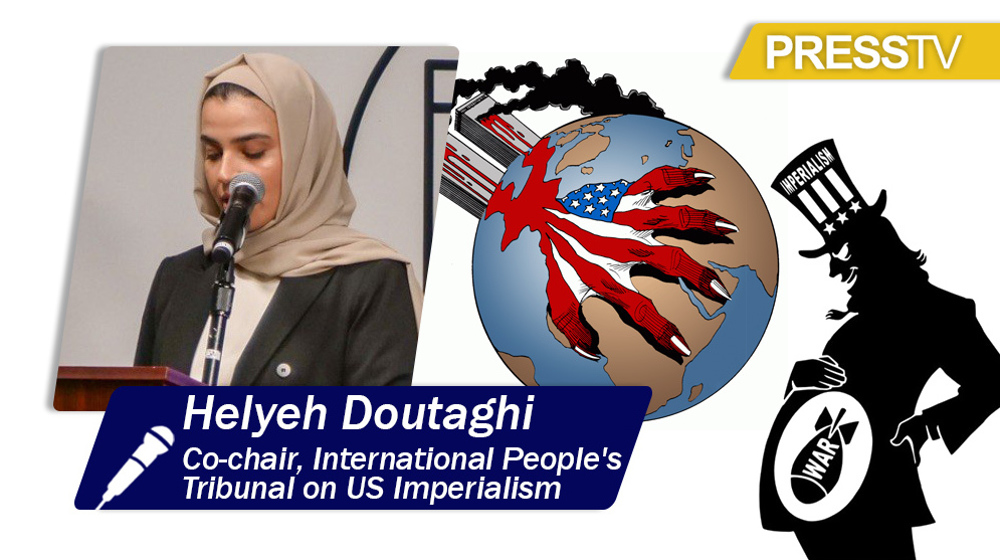
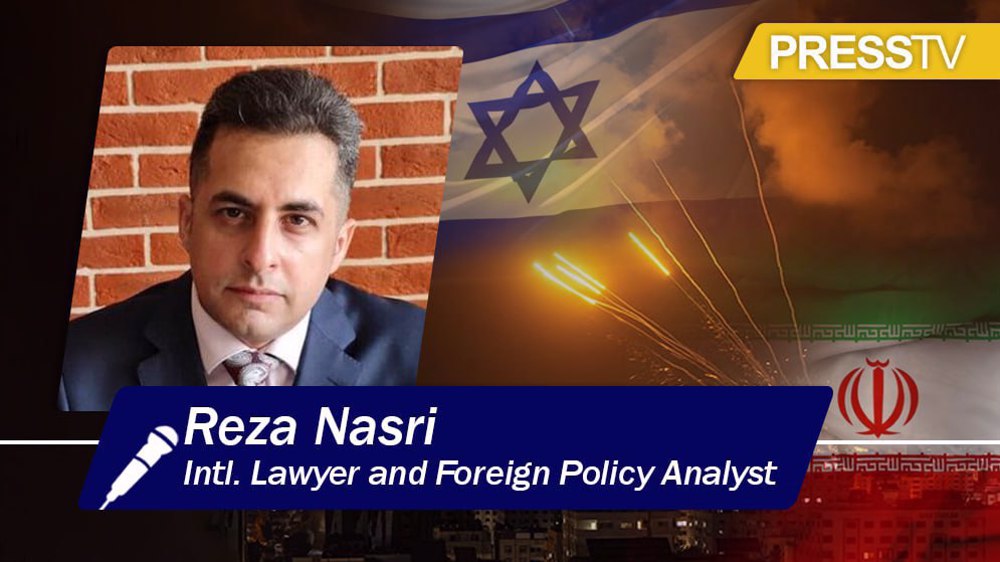
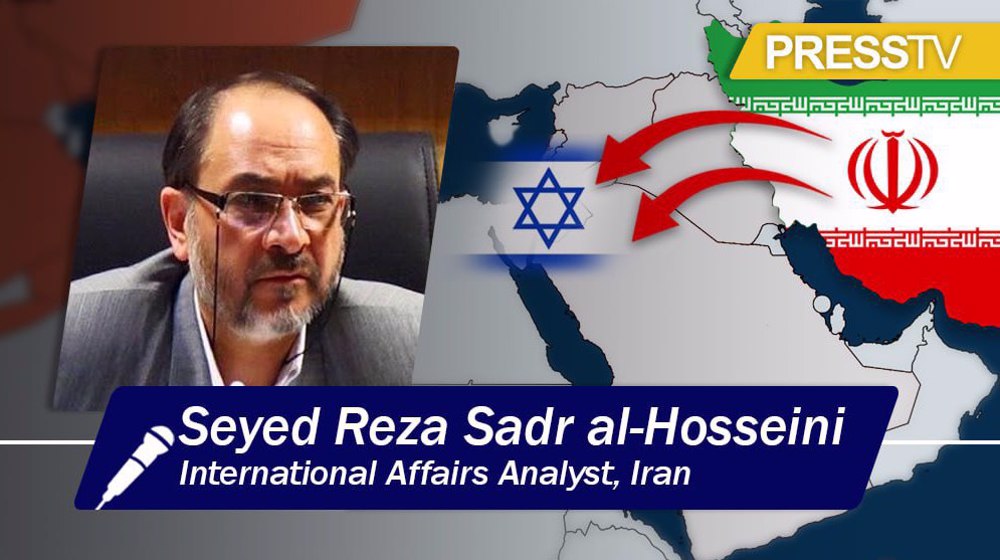
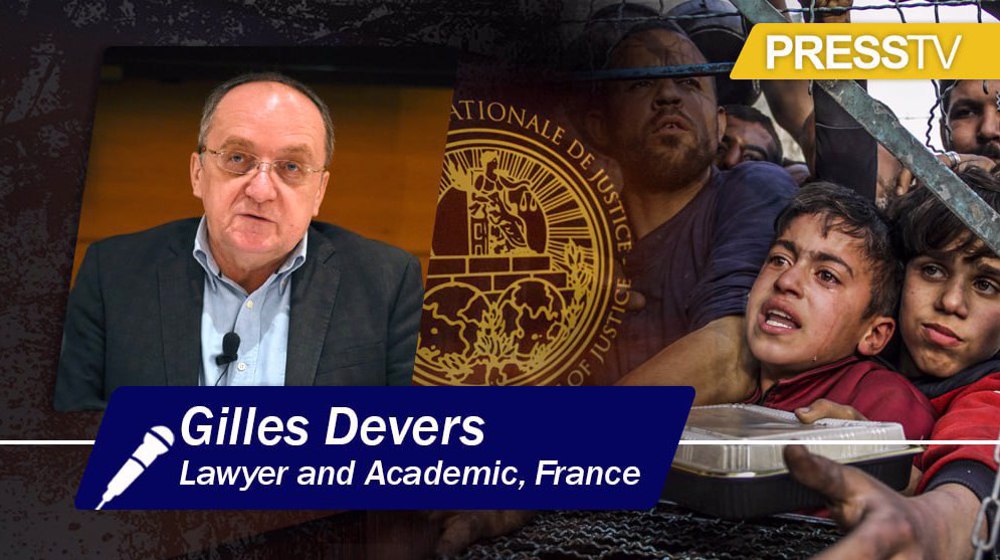



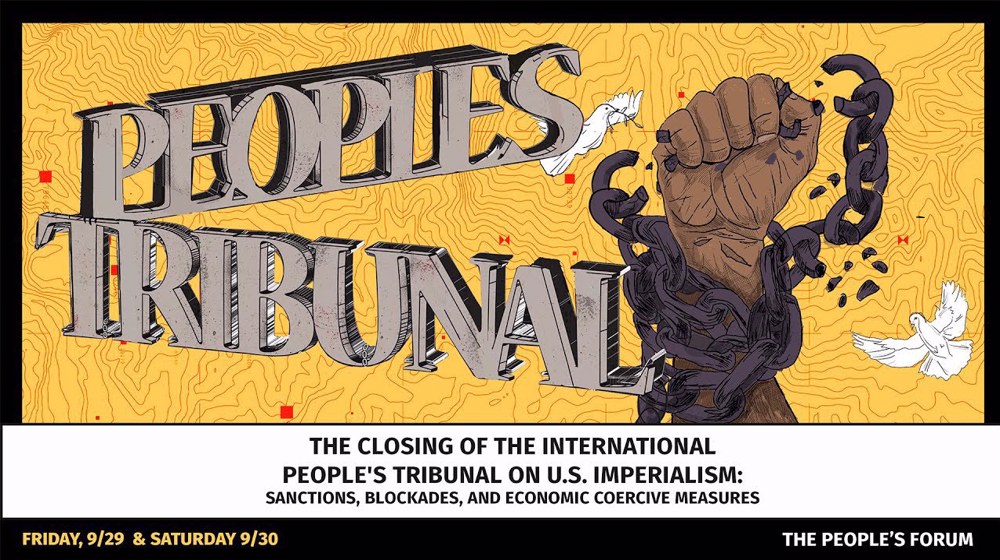
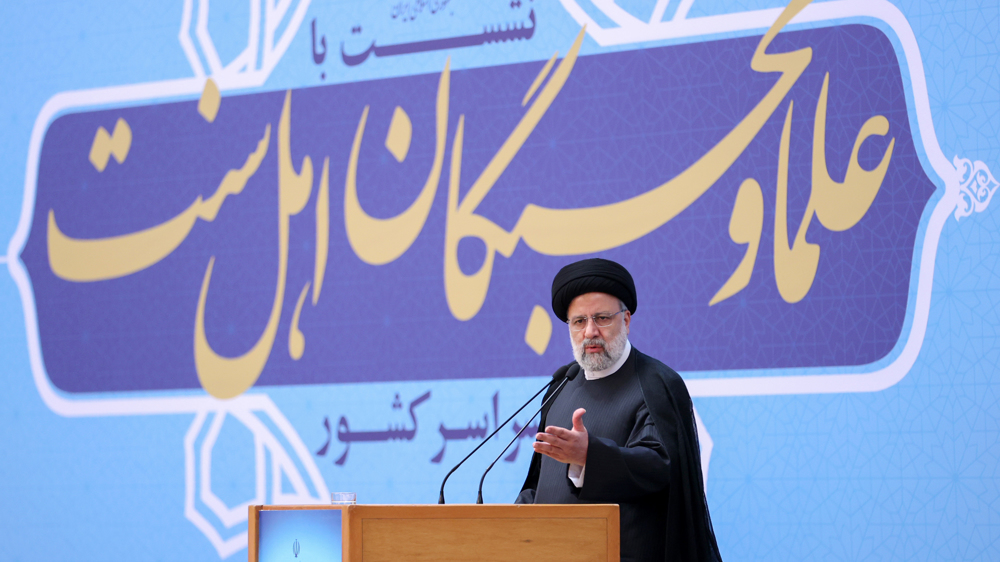
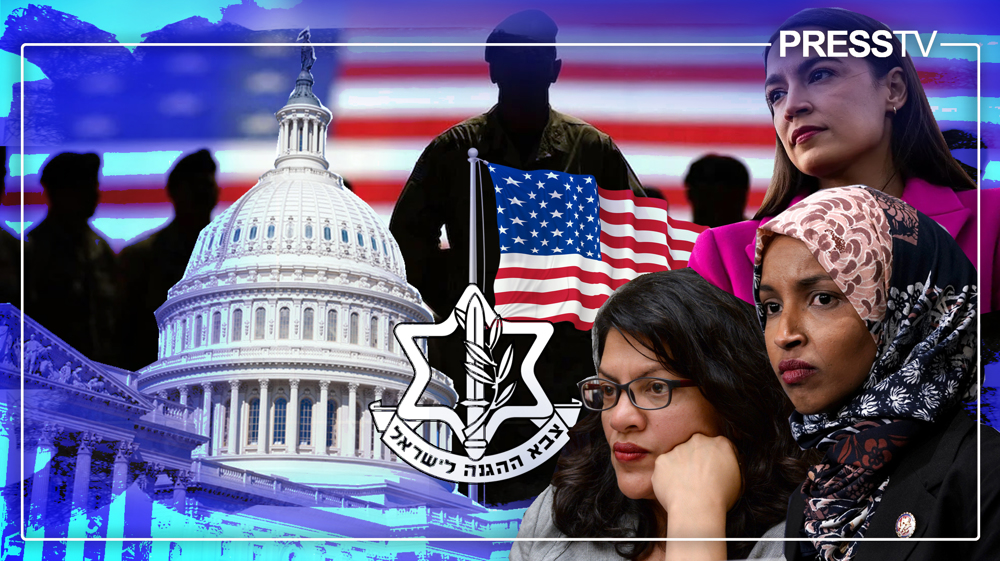
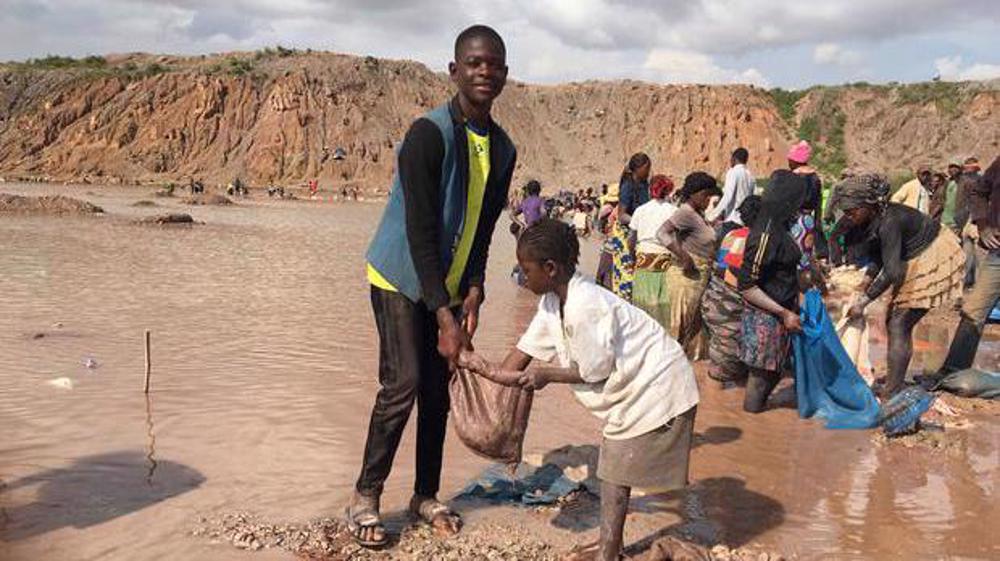
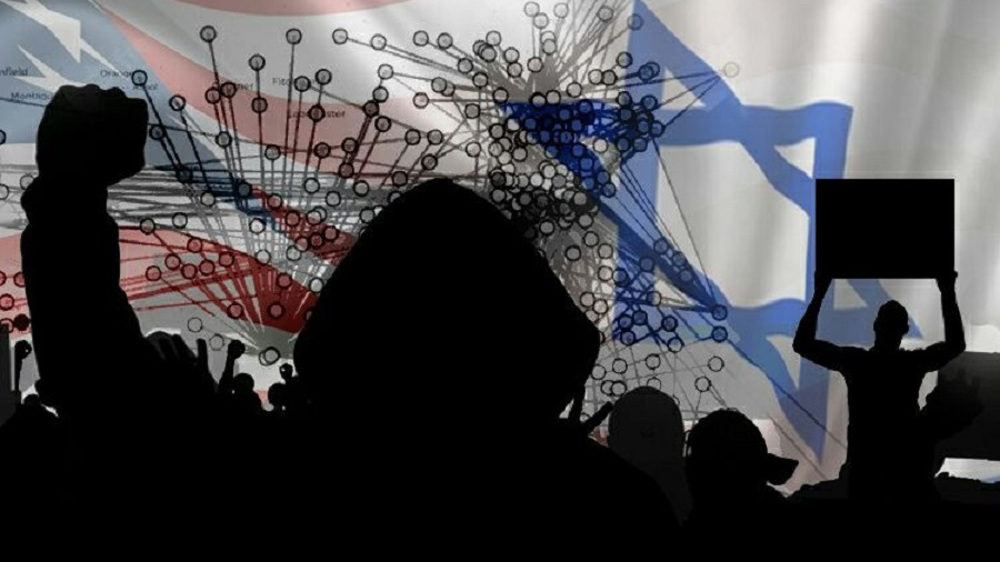

 This makes it easy to access the Press TV website
This makes it easy to access the Press TV website